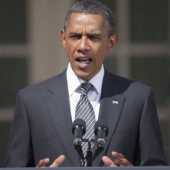- ‹ previous
- 203 of 14333
- next ›
Dickens' Hard Times comments on the ridiculousness of Victorian morality laws
Dickens' Hard Times comments on the ridiculousness of Victorian morality laws

Dickens’s Hard Times is a scathing criticism of the rampant social and economic moralism in Victorian England. Set in a fictitious mill-town called Coketown, it prominently features Stephen Blackpool, the poor millworker, and his moral protector, Bounderby, the immoral, hypocritical boss, as stand-ins to demonstrate England’s ludicrous morality laws. The only real moral character in the book is Rachael, a poor worker herself.
Laws in Victorian England reflected the widespread feeling that the upper class needed to guide their lower class counterparts on a moral path. For example, lower class citizens could not purchase life-insurance for children under six years and, by 1850, could only cover their children under ten for a maximum of three pounds. Medical Doctor for the County of Derby Sidney Barwise (not, in fact, a Dickens character name) said that all it would take for a poor parent to commit infanticide was “a few shillings; anything sufficient for a drink.” Barwise, like many of his contemporaries, implied that the morally corrupt working class would kill their children to collect their life insurance, therefore these laws were necessary to keep the working class morally in-line.
Dickens illustrates this idea of the upper class as the moral protectors of the lower class with an interaction between Stephen Blackpool and Bounderby. Blackpool comes to talk to Bounderby about divorcing his alcoholic wife. Bounderby says “it would cost you (if it was a case of very plain-sailing), I suppose from a thousand to fifteen hundred pound…Perhaps twice the money.” This figure is incorrect, according to Justice Maule, who in 1845, said a typical divorce was around five hundred to six hundred pounds (Stone). Bounderby made up an outrageous sum to prevent Stephen from even considering divorce as an option. Bounderby also says, “Now, you have always been a steady Hand hitherto; but my opinion is, and so I tell you plainly, that you are turning into the wrong road” (p.77). This statement expresses Bounderby’s belief that divorce was wrong for every worker because of their innate immorality—he didn’t even take Blackpool’s tale of woe into account. By illustrating the immoral Bounderby as Blackpool’s morality patroller, Dickens also sets up the hypocrisy of the rich, who aren’t necessarily moral, themselves, dictating moral decisions to the poor.
Dickens also illustrates the hypocrisy of a class claiming the moral superiority for itself by creating moral and immoral characters throughout the classes. Rachael is the most moral character in the book. She, rather than Bounderby, is the protector of Stephen Blackpool’s morality because she stops him from letting his wife kill herself. Either the voice of the narrator or Blackpool’s thoughts say, “If this be real, and her allotted time be not yet come, wake, Rachael, wake!” Rachael does wake and saves Mrs. Blackpool from killing herself. Whether this quote illustrates the thoughts of Stephen Blackpool or of the narrator, by saying “her allotted time be not yet come,” this quote sets up a natural order which is controlled by a higher power. Relegating that power to control death to an earthly individual—either Mrs. Blackpool in killing herself or Stephen in stopping her—would be violating this moral order.
Bounderby, on the other hand, is an immoral character who needs protection throughout his life from his mother. Bounderby keeps his status as an upper class man, and his façade that he is a self-made man only because his mother protects her own identity. “I have never said I was I was your mother. I have admired you at a distance…” (p.252) says Mrs. Pegler after the truth of their relationship is revealed. Even though she loved him, she protected the identity he wished to present by hiding herself—putting his wants before her own and therefore presenting another example of a moral, lower class character. In this case, the lower class character was the protector of the perceived morality of an upper class character.
Dickens seems to believe there is a potential for goodness and a morality in the lower classes, nor does he believe in an inherent intelligence gap between the poor and the rich. Dickens seems to emphasize the ridiculousness of one class feeling the need to “protect” another.
Works Cited
Dickens, Charles. Hard Times London: Penguin Books, 2003.


